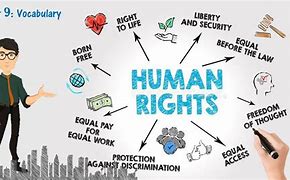India, like many other countries, recognizes and upholds a set of basic human rights for its citizens. These rights are enshrined in the Constitution of India and are protected by various laws. Here are some of the fundamental human rights in India:
Right to Equality (Articles 14-18):
- All citizens are equal before the law.
- Prohibits discrimination on grounds of religion, race, caste, sex, or place of birth.
Right to Freedom (Articles 19-22):
- Freedom of Speech and Expression: Allows citizens to express their thoughts, ideas, and opinions freely.
- Freedom of Assembly: Grants the right to assemble peacefully.
- Freedom of Association: Allows citizens to form associations or unions.
- Freedom of Movement: Guarantees the right to move freely within the country.
Right Against Exploitation (Articles 23-24):
- Prohibits human trafficking and forced labor.
- Protects children from exploitation and mandates that no child below the age of 14 shall be employed in hazardous jobs.
Right to Freedom of Religion (Articles 25-28):
- Guarantees the freedom of conscience and the right to freely profess, practice, and propagate any religion.
- Allows the management of religious institutions to have the right to administer their affairs.
Cultural and Educational Rights (Articles 29-30):
- Provides minorities with the right to conserve their language, script, and culture.
- Grants the right to establish and administer educational institutions of their choice.
Right to Constitutional Remedies (Article 32):
- Enables citizens to move the Supreme Court for the enforcement of their fundamental rights through writs such as habeas corpus, mandamus, prohibition, quo warranto, and certiorari.
Right to Privacy:
- Although not explicitly mentioned in the Constitution, the Supreme Court has recognized the right to privacy as a fundamental right derived from the right to life and personal liberty.
Right to Education (Article 21-A):
- Ensures free and compulsory education for all children in the age group of 6 to 14 years.
Right to Life and Personal Liberty (Article 21):
- Protects the right to life and personal liberty, except according to the procedure established by law.
Right to Information (RTI Act, 2005):
- Grants citizens the right to request information from public authorities, promoting transparency and accountability.
